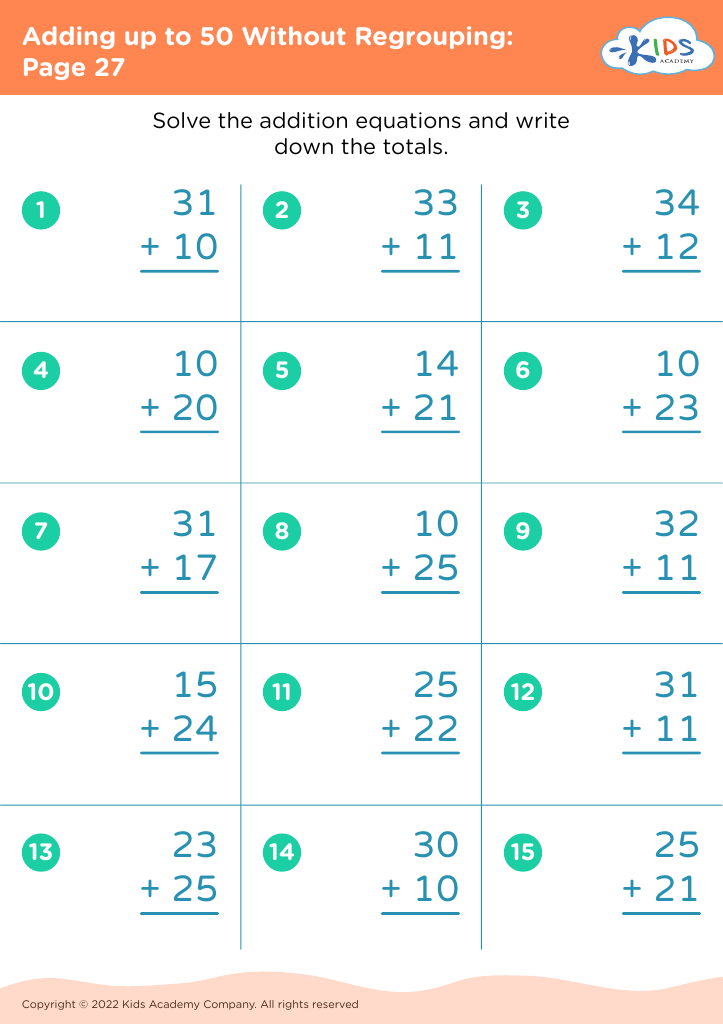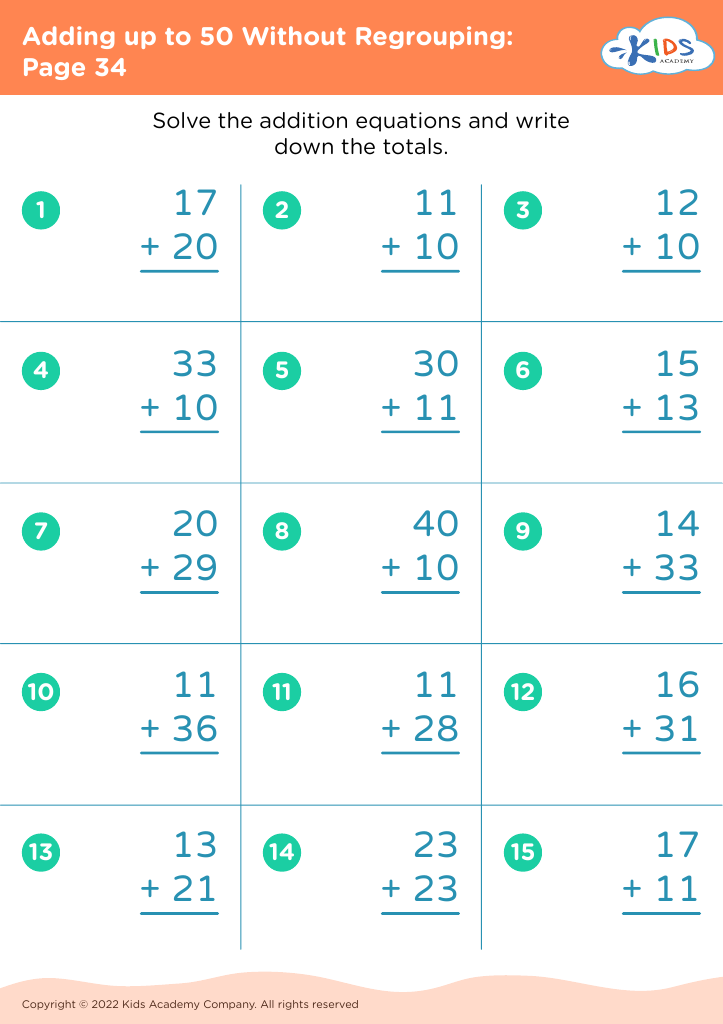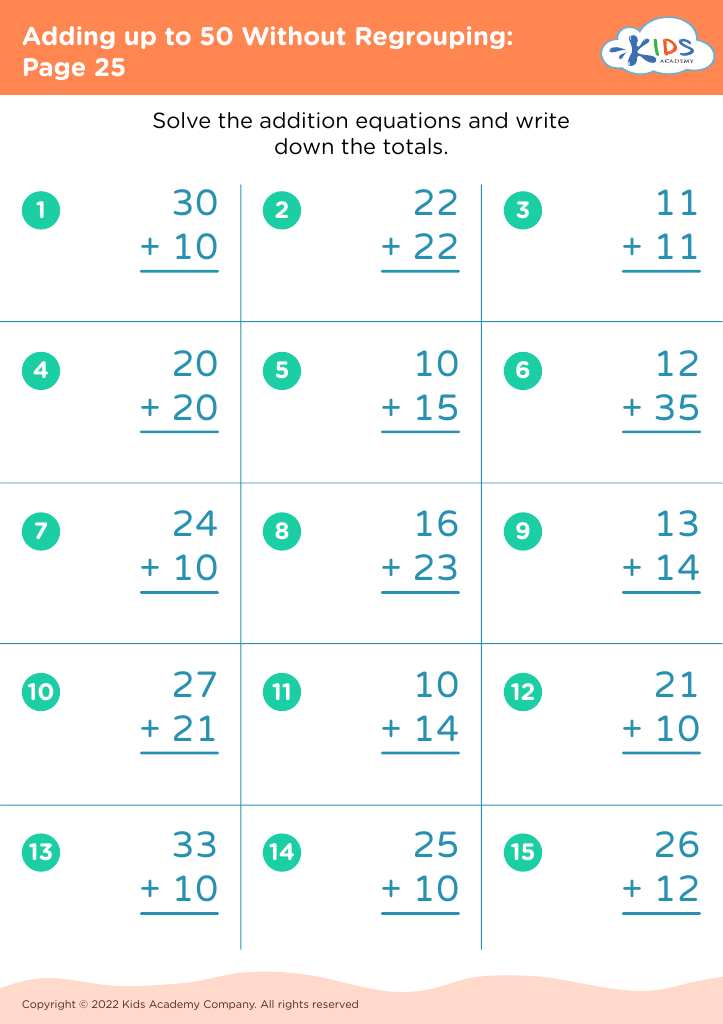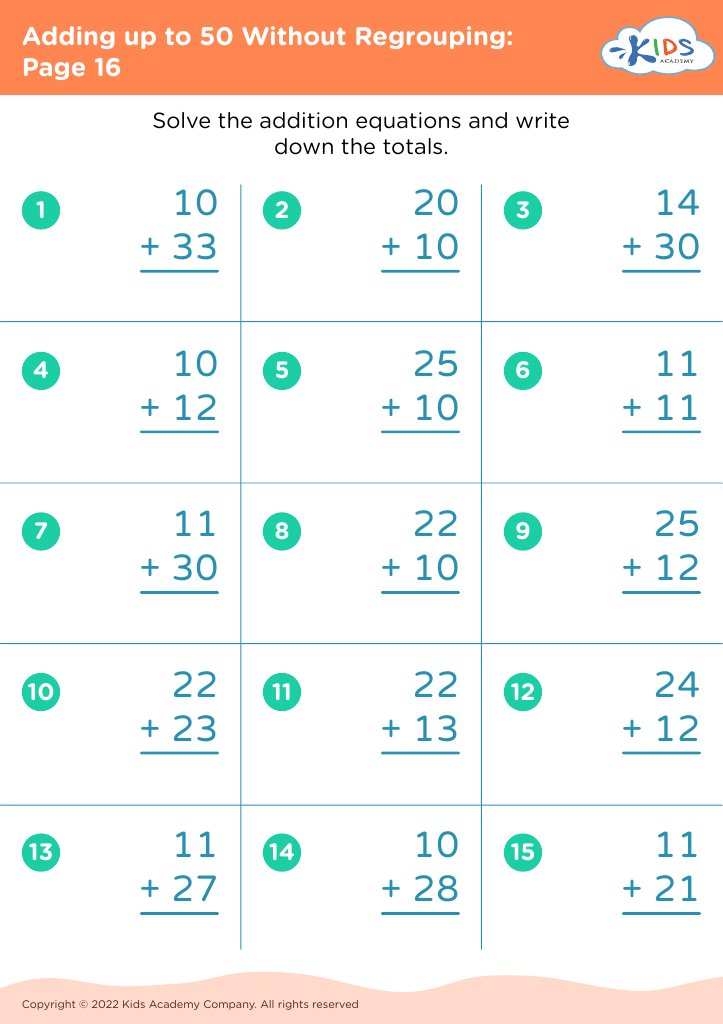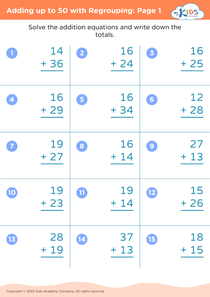Comparing Fractions Grade 2 Adding up to 50 Without Regrouping Worksheets
7 filtered results
-
From - To
Welcome to our "Comparing Fractions Grade 2 Adding up to 50 Without Regrouping Worksheets" page! Designed for young learners, these engaging worksheets help students grasp the concept of comparing fractions with ease. Focusing on addition skills that total up to 50, children will enhance their fraction understanding while honing their math abilities. These resources provide step-by-step problems, colorful illustrations, and interactive challenges to keep students motivated and excited about learning. Great for classroom use or home study, our worksheets encourage critical thinking and reinforce important math concepts. Inspire your child's confidence in mathematics today and watch them flourish!
Understanding comparing fractions and adding numbers without regrouping are foundational skills for second graders, essential for building their mathematical fluency. Caregivers and educators should prioritize these concepts because they foster critical thinking and problem-solving abilities. When children learn to compare fractions, they are not just working with numbers; they are developing an understanding of parts and wholes, which plays a crucial role in everyday decision-making and real-world applications.
Moreover, adding numbers up to 50 without regrouping promotes accuracy and confidence in basic arithmetic abilities. This skill ensures that students can tackle larger numbers and more complex operations as they progress. By mastering these fundamental concepts, children gain a solid mathematical framework that will support their future learning.
Furthermore, engaging with these skills reinforces perseverance and analytical thinking, as children must evaluate and choose the appropriate methods to solve problems. Overall, comparing fractions and adding without regrouping are essential skills that contribute to a child’s overall mathematical understanding, encouraging not only academic success but also the development of a positive attitude towards math that can last a lifetime. Parents and teachers play a vital role in nurturing these abilities, which can significantly impact a child's confidence and enthusiasm towards learning.
